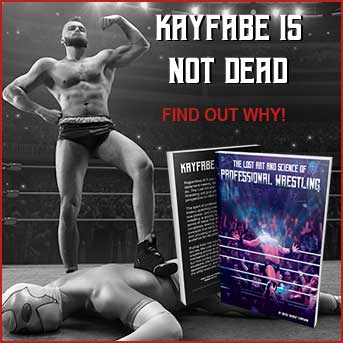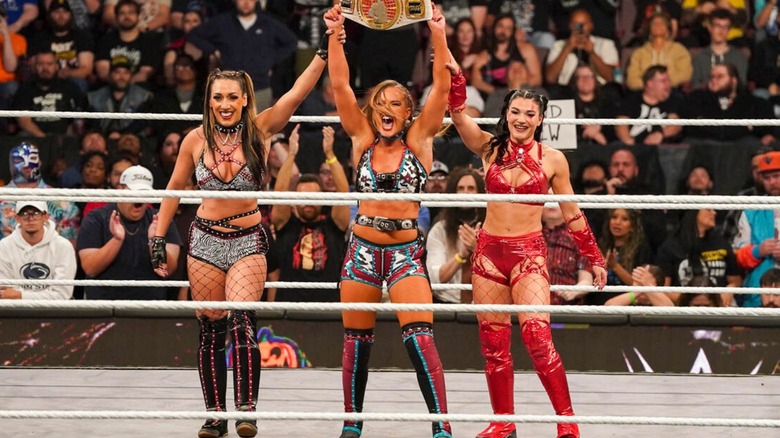MMA has traditionally been one of the toughest sports to promote unless the three letters attached to the organization are UFC.
Numerous second-place contenders have come and gone over the years from Strikeforce to PRIDE Fighting Championships, WEC, and even upstarts like Affliction, have failed to really carve out a long term, sustainable piece of the combat sports pie. By all accounts, the PFL has settled into the No. 2 spot in MMA behind the UFC after acquiring Bellator in 2023. However, that deal hasn’t exactly gone smoothly with numerous high-profile fighters, including champions Patricio Pitbull and Patchy Mix, requesting releases due to inactivity.
Retired UFC welterweight Matt Brown argues that many of these promotions just don’t have the best business plan to find long-term success, especially with organizations like the PFL billing itself as “fighter first” and handing out massive paydays such as the $1 million prize per weight class handed out each year.
“There’s only been one truly successful fight promotion in history — the UFC,” Brown said on The Fighter vs. The Writer. “They did not build it by helping fighters. I think that’s where they’re all kind of f*cking up.
“I say that as a former fighter, I want to see everybody get paid and do well but the UFC built their business lowballing fighters and still almost went out of business. There are still a lot of arguments about how they take care of their fighters even today. I find it hard to believe that making it a fighter based, help the fighter promotion is really the way to build a promotion. I hate saying that because I love that they care about the fighters. I love the thought process behind it, but is that going to build a promotion? I have a hard time believing it.”
The UFC famously went $40 million into debt after Lorenzo and Frank Fertitta bought the struggling promotion for $2 million with hopes of turning things around. Just when it looked like the UFC was going to fail and potentially close its doors permanent, The Ultimate Fighter reality show found a niche audience and then more and more events became must-see television.
In 2016, the UFC sold to Endeavor — a powerhouse talent agency at the time — for over $4 billion and now the company combined with World Wrestling Entertainment is valued at $21.4 billion.
Following the global pandemic, the UFC has produced record revenues year after year with dozens of sold-out shows and an upcoming broadcast rights deal in 2025 that could double or even triple what the organization was paid from an exclusive deal with ESPN just a few years ago.
That’s all happening while the UFC still faces plenty of criticism about the amount of money being paid back to the fighters. During the recent UFC antitrust lawsuit — including one that’s been settled and another still ongoing — financials released showed that fighters were typically making between 16 to 20 percent of the revenue.
Major sports leagues like the NFL and NBA pay out 50 percent of the revenue to players as part of collective bargaining agreements struck with powerful unions representing the athletes. No such unions exist in MMA and that goes for the UFC, PFL or anybody else getting involved with the sport.
While Brown is happy to see an organization like the PFL hand out those $1 million checks and sign fighters like former UFC heavyweight champion Francis Ngannou to lucrative deals, he just doesn’t see how that pays off over time.
“To be honest, I’m not sure how they’ve existed this far,” Brown said about the PFL. “If they keep doing whatever they’re doing, maybe they keep existing. I don’t really know how it’s operating currently. They bought Bellator, and we all thought well maybe they could now be a clear No. 2, because they were claiming they were No. 2 before, like close to the UFC or some shit, and it’s like no, not really. It’s basically UFC and everybody else. You’re all everybody else.
“When they bought Bellator, we thought well maybe something good will happen here and guys will have other options and some good things will come of it. Again, I don’t know how they survived this far. How do they get through 2025... I’m not really sure how it’s working.”
Meanwhile, Global Fight League made a splash after announcing plans for a team-based format that is expected to launch in 2025 with a long list of notable names already signed to the roster.
Numerous ex-UFC champions signed contracts to fight for GFL with the company announcing a 50/50 revenue split with athletes, insurance coverage and even retirement benefits.
It all sounds good on paper, but Brown can’t help but question if that’s actually going to result in a winning formula for GFL. Add to that, Brown doesn’t buy that the team format is ever going to work in MMA, especially after past promotions like the IFL have tried and failed with that same concept.
“You’re just f*cking up,” Brown said about the team format in GFL. “To build somebody caring about a team, I don’t even know how you do that. People care about football and basketball teams, that’s completely different. I don’t know how you get people interested in caring about a fight team for a city. People care about stars and drama. That’s it. I hope the check cashes. I hope it doesn’t bounce.”
As much as Brown wants fighters to have options, which means these other promotions need to exist, he just doesn’t know how anybody is going to find a business plan that actually works outside of a situation like what’s happening in boxing right now.
“If you look at all the promotions that are big between boxing and UFC, they all started kind of small and took many, many years to build,” Brown said. “How to start from the top, unless you’re doing what Saudi Arabia is doing where you’ve got just trillions at your disposal and it’s play money just throwing a few million around here and there, because you want to see cool fights, which is a completely different thing.
“This business model [in MMA], I’d like to see their accountants’ numbers. Where are you adding up here in the end where all of this makes sense?”















